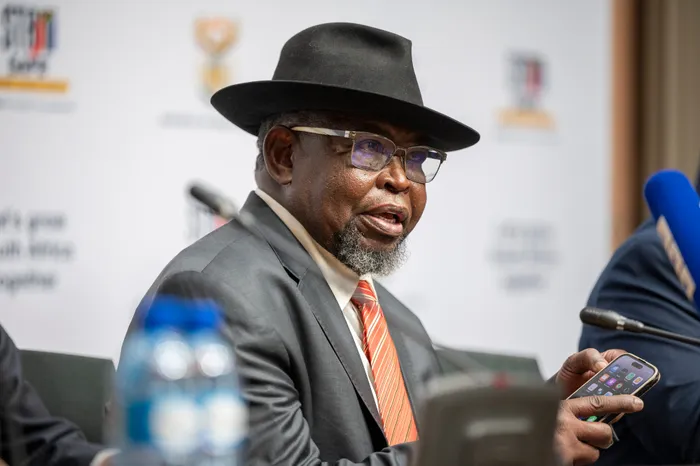Government facing backlash if VAT is increased

A different budget proposal is expected to be presented by Finance Minister Enoch Godongwana on March 12.
Image: Armand Hough / Independent Newspapers
Civil society organisation Black Sash and trade federation Cosatu have called for a wealth tax instead of an increase in VAT as the Cabinet of the Government of National Unity (GNU) was still locked in a marathon meeting on the budget proposals to fund government spending on Monday.
Finance Minister Enoch Godongwana was expected to provide a revised budget to the Cabinet on Monday after last month's budget was postponed after GNU partners could not reach consensus on Godongwana's decision to increase VAT by 2%.
It is understood that President Cyril Ramaphosa had propose a VAT increase of between 0.5 and 1% at the Cabinet meeting but the DA remained adamant that VAT should remain unchanged.
Black Sash said it would reject any VAT increase, regardless of the percentage that the GNU government suggested.
"Our expectations stemming from today's Cabinet discussions on the budget speech and VAT hikes are focused on ensuring that the government listens to public concerns and takes action to protect the most vulnerable... so we are hoping for a rejection of any VAT hike.
"Given the strain that an increase in VAT would place on everyday South Africans, especially those in lower income brackets, we expect Cabinet to consider this policy and explore alternative revenue-generating measures that won't disproportionately affect the most vulnerable,” said the organisation's spokesperson Oliver Meth.
Godongwana's budget has been postponed to March 12 to allow for more time to discuss whether an increase in VAT was the only feasible option to to find a solution to the R60 billion shortfall in the budget.
Meth called for a more progressive tax system, including the taxation of the super-rich, which could provide a fairer contribution from those with the most resources, ensuring that the burden is not placed on ordinary citizens.
He said Black Sash is expecting the Cabinet to make decisions that prioritise the needs of the majority, ensuring that the national budget is aligned with the goals of reducing inequality and improving social services for all living in South Africa.
Cosatu's parliamentary office spokesperson Mathew Parks called on government to retain the positive allocations in the budget that will capacitate the state to deliver quality public services, stimulate economic growth and reduce unemployment.
"Government must honour the public service wage agreement, fill critical public sector vacancies, investing in frontline public services, rebuild critical economic infrastructure and expand public employment programmes and provide relief for the poor."
Parks said the federation had proposed to government that it take a pension fund holiday and not contribute to the Government Employees Pension Fund for a year, which would allow the state to find R53 billion to fund its spending in this financial year.
Cosatu said it was hoping that this proposal would be discussed at the Cabinet meeting, saying this was an easier way to fund the budget shortfall without placing burden on those South Africans who could not afford a VAT increase.
Parks said in addition to the pension holiday, government must: "reprioritise expenditure, tackle wastage and corruption, capacitate South African Revenue Services to improve tax compliance, reduce tax loopholes for the wealthy as well as large corporations, engage the developmental finance institutions to invest in economic infrastructure and public employment programmes".
Cosatu also called on the government to stop bearing the costs of SANDF peacekeeping missions in the Democratic Republic of Congo, saying this should be borne by the United Nations.
The SANDF mission in the DRC is estimated to have cost taxpayers more than R5 billion.
Willem.phungula@inl.coza
